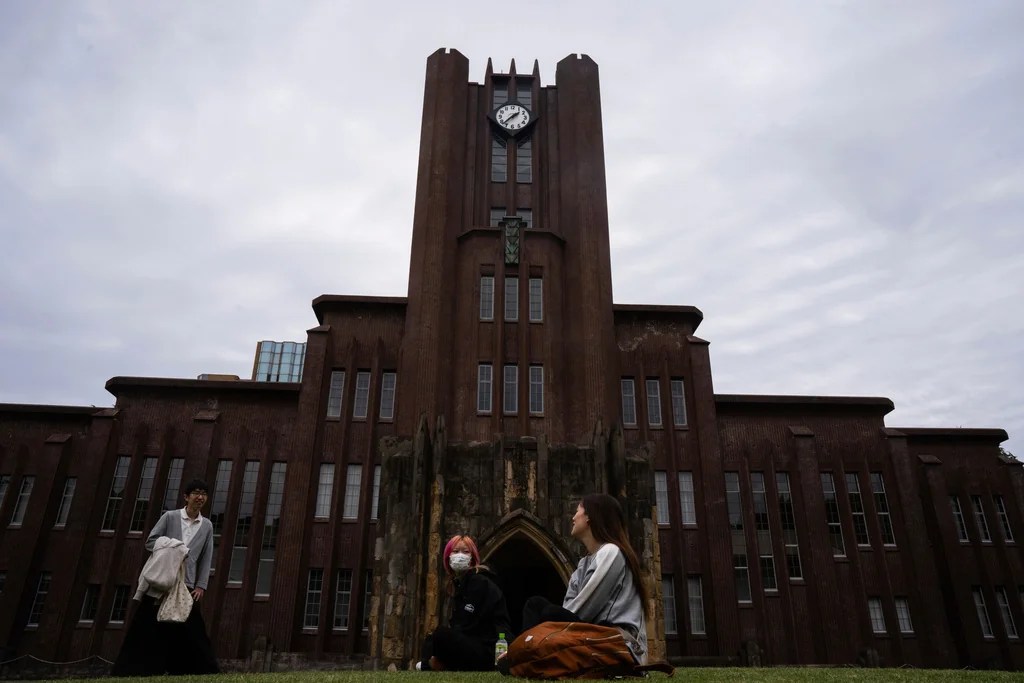


Governments in East Asia are hoping to attract their nations’ brightest overseas students in the wake of President Donald Trump’s war against Harvard University.
China, Japan, Malaysia, and others are implementing programs that will seek to entice current Harvard students from their country to return and finish their education domestically, as the future of international enrollment at the Ivy League heavyweight is questioned.
Recommended Stories
- Trump administration seeks to dismiss lawsuit over Abrego Garcia’s deportation
- Joe Concha warns alleged shadow Cabinet 'is not democracy'
- Annual Vietnam veterans ceremony relocates for the first time due to Trump's military parade
“The U.S. is the biggest destination for Japanese students studying abroad,” Japanese Minister of Education Toshiko Abe said on Tuesday. “We are committed to ensuring, in collaboration with related agencies, that motivated and talented young people can continue their studies.”

The Japanese government is urging local and national universities to accommodate valuable students who are at risk of becoming academic free agents.
A prime candidate for repatriated transplants is the University of Tokyo, widely considered the most prestigious institution of higher education in the country. The university announced that it will consider the start of a program to extend enrollment to displaced Harvard students, though these plans are still in an early phase.
Korea University, a similarly prestigious institution in South Korea, is already moving forward with a transfer program.
“We will spare no effort to provide necessary support to ensure talented individuals who wish to continue their studies amid the difficult situation be able to pursue their research and academic endeavors at Korea University,” said university President Kim Dong-one, according to Korea JoongAng Daily.
The Department of Homeland Security revoked Harvard’s Student and Exchange Visitor Program certification last week for failing to comply with an April 16 demand for information about international students believed to be contributing to public disruptions and illegal protests.
“Harvard’s leadership has created an unsafe campus environment by permitting anti-American, pro-terrorist agitators to harass and physically assault individuals, including many Jewish students,” the DHS said in a press release.
“Many of these agitators are foreign students,” it continued. “Harvard’s leadership further facilitated, and engaged in coordinated activity with the [Chinese Communist Party], including hosting and training members of a CCP paramilitary group complicit in the Uyghur genocide.”
Chinese officials have been far more outraged in their reaction to the Harvard debacle than Japan or Korea, but are offering similar solutions.
“China-U.S. education cooperation benefits both sides. China opposes politicizing education cooperation,” said Chinese Foreign Ministry spokeswoman Mao Ning. “What the U.S. seeks to do will undoubtedly hurt its own image and reputation in the world.”
Most of China’s efforts to entice jeopardized Harvard students are focused on schools in Hong Kong, a special administrative region.
Hong Kong Secretary for Education Christine Choi Yuk-lin announced that “in response to the ban on Harvard University recruiting international students, the Education Bureau has immediately contacted local universities to call on them to take proactive action.”
Hong Kong University of Science and Technology offered an open invitation to disillusioned Harvard students almost immediately after the future of foreign visas was thrown into question.
Other efforts to bring Asian students home are being pursued without direct involvement of national governments.
Elizabeth Lee, CEO of Sunway University in Malaysia, offered condolences to her fellow Malaysians “caught in a bind with the U.S. Department of Homeland Security’s recent announcement” that “places the university’s current and incoming international students at serious risk of losing their legal right of passage and abode in the USA.”
“Please know that you’re most welcome to immediately transfer to us at Sunway Education,” she added. “We can directly take any students who are affected into our range of programmes at Sunway University.”
Lee offered to prospective transfers her institution’s partnership with Arizona State University, which would allow students to stay in the United States to complete their education.
The White House’s war against the country’s most famous university shows no signs of stopping. In fact, it’s getting worse.
The Trump administration is now instructing federal agencies to review any contracts held with the university and terminate those deemed unnecessary. Agencies are also instructed not to consider Harvard for possible future contracts.
HARVARD REVOKES TENURE FROM PROFESSOR FOR FIRST TIME IN EIGHT DECADES OVER ETHICS SCANDAL
“We are out of business with Harvard, so look for other vendors for things you would have considered Harvard for,” an official familiar with the matter told the Washington Examiner.
A temporary injunction granted by a federal judge has delayed the end of student visas and bought international students some time, but without the support of the federal government, Harvard faces an undesired yet inevitable need to transform.
